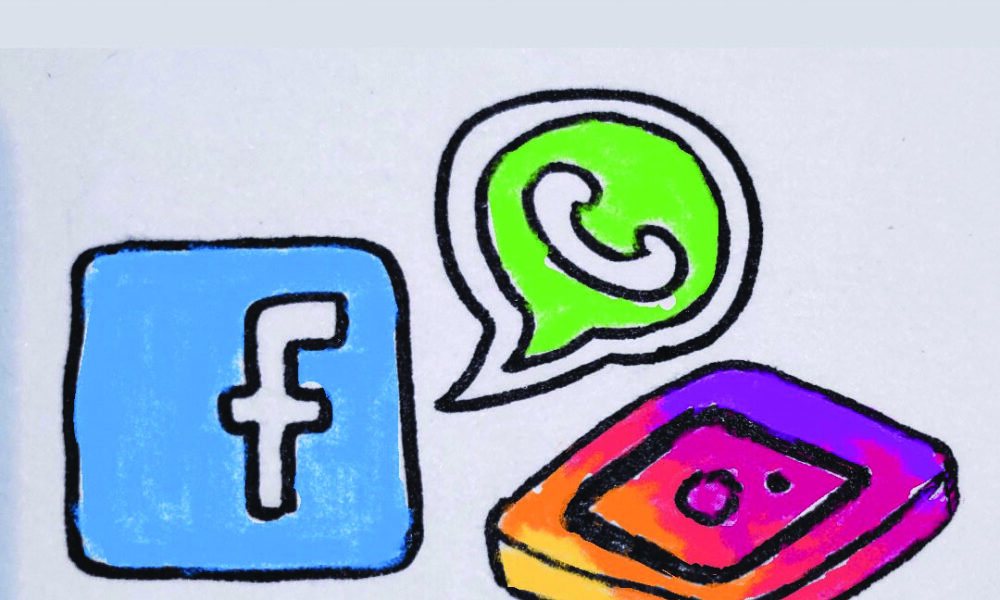On Monday, Oct. 4, at approximately 11:30 a.m., the entirety of Facebook shut down due to an internal malfunction. Its 3.5 billion users were denied access for approximately six hours, resulting in global panic and complaints. With WhatsApp, Messenger, Instagram, and all the other Facebook-owned platforms also down, many of McGill’s clubs and student-run organizations were left scrambling to find alternative methods of communication. Despite the temptation to surrender to the simplicity of remote learning, the outage served as a reminder that students and instructors should stay grounded in tangible learning, like taking handwritten notes rather than typing, and attending in-person lectures rather than watching the recorded ones.
The outage was a stark reminder of our dependence on social media. In a boom of online school and work, the pandemic has become a turning point: Society has now entered an irrevocable interdependent relationship with the internet.
Within four hours of the shutdown, Twitter’s official account tweeted about the influx of new users migrating to their platform from Facebook. Within hours, the tweet amassed over 2.4 million likes. Many news sources were providing live updates throughout the incident, the first serious outage Facebook has had since 2019. As the software came back online, Facebook apologized in a tweet, and CEO Mark Zuckerburg also issued a statement in a post. However, already exposed was the terrifying reality that Facebook dominates our lives.
Billions of people use Facebook every day, relying on it for communication of all sorts. Outside of North America, WhatsApp is the main platform for communication. With over two billion users worldwide, it was estimated to generate between five and 10 billion dollars in revenue for Facebook in 2020 alone. Added to Facebook’s monopoly on advertising and user data, the company has immense control over its users’ behaviour and encounters. At McGill, students use Facebook to chat with classmates and discuss course material—a now-normalized version of study groups. But many clubs and student-run activities at McGill also rely on Facebook’s apps for communication purposes, especially over the pandemic.
But many clubs and student-run activities at McGill also rely on Facebook’s apps for communication purposes, especially over the pandemic. With many operations now fully online, social media and the internet permeated into nearly all aspects of life. This rapid switch from analogue to digital prompted the development of online softwares designed to ease the transition, propelling platforms like Zoom to see an unprecedented boom in popularity. The internet is convenient and efficient, and as the world slowly opens up and normalcy returns, society is left with a growing—and potentially permanent—dependence on online technologies.
However, as much as society needs the internet, the internet also needs society. The outage resulted in Facebook shares plummeting 4.9 per cent—their biggest drop in almost a year. There is heavy corporate reliance on the customer base, and Facebook depends on their users to generate revenue. A self-sustaining cycle is created: The internet and social media are made popular by society and society uses them due to their popularity. This growing reliance on technology suggests the internet will continue to remain a crucial part of everyday life, but such a codependent relationship could have disastrous consequences, leaving society’s future entanglement with technology uncertain.
Luckily, the majority of McGill’s coursework is distributed through myCourses, which is not a Facebook platform, but we can rest assured that if Zoom were to go down in a similar way, it would certainly result in campus-wide panic. With no alternative way to deliver online classes, McGill will need to confront post-pandemic academia as roughly half of the academic schedule would be thrown off course dramatically.









